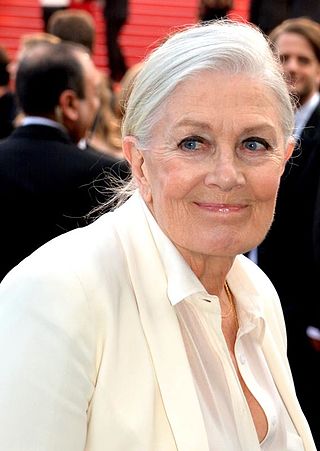
Dame Vanessa Redgrave is an English actress. Throughout her career spanning over six decades, Redgrave has garnered numerous accolades, including an Academy Award, a Tony Award and two Primetime Emmy Awards, making her one of the few performers to achieve the Triple Crown of Acting. She has also received various honorary awards, including the BAFTA Fellowship Award, the Golden Lion Honorary Award, and an induction into the American Theatre Hall of Fame.
Dame Margaret Natalie Smith is an English actress. With an extensive career in the theatre, on film, and in television over seven decades, she is one of Britain's most recognisable and prolific actresses. She is particularly noted for her wit in comedic roles.
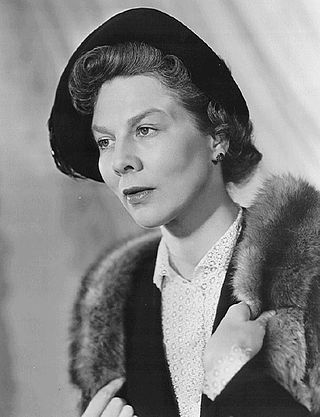
Dame Wendy Margaret Hiller, was an English film and stage actress who enjoyed a varied acting career that spanned nearly 60 years. Writer Joel Hirschorn, in his 1984 compilation Rating the Movie Stars, described her as "a no-nonsense actress who literally took command of the screen whenever she appeared on film". Despite many notable film performances, Hiller chose to remain primarily a stage actress.
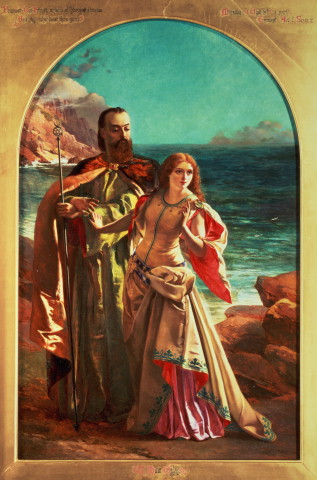
Prospero is a fictional character and the protagonist of William Shakespeare's play The Tempest. Prospero is the rightful Duke of Milan, whose usurping brother, Antonio, had put him to sea on a "rotten carcass" of a boat to die, twelve years before the play begins. Prospero and Miranda had survived and found exile on a small island. He has learned sorcery from books, and uses it while on the island to protect Miranda and control the other characters.
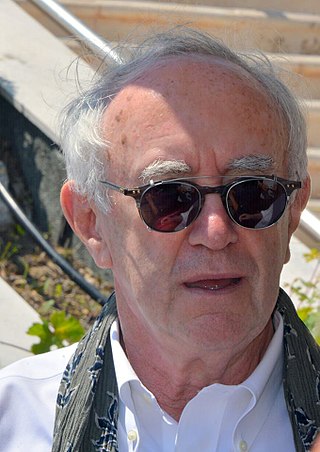
Sir Jonathan Pryce is a Welsh actor who is known for his performances on stage and in film and television. He has received numerous awards, including two Tony Awards and two Laurence Olivier Awards, and a knighthood for services to drama.

Sir Michael Scudamore Redgrave CBE was an English actor, director, producer, screenwriter, manager and author. He received a nomination for the Academy Award for Best Actor for his performance in Mourning Becomes Electra (1947), as well as two BAFTA nominations for Best British Actor for his performances in The Night My Number Came Up (1955) and Time Without Pity (1957).

Lynn Rachel Redgrave was an English actress. She won two Golden Globe Awards during her career.

Annette Carol Bening is an American actress. In a career spanning over four decades, she has received various accolades, including a BAFTA Award and two Golden Globes as well as nominations for a Primetime Emmy Award, two Tony Awards, and four Academy Awards.

Natasha Jane Richardson was an English actress. A member of the Redgrave family, Richardson was the daughter of actress Vanessa Redgrave and director/producer Tony Richardson and the granddaughter of Michael Redgrave and Rachel Kempson.

Estelle Parsons is an American actress.

Geraldine McEwan was an English actress, who had a long career in film, theatre and television. Michael Coveney described her, in a tribute article, as "a great comic stylist, with a syrupy, seductive voice and a forthright, sparkling manner".

Corin William Redgrave was an English actor and left-wing socialist activist.
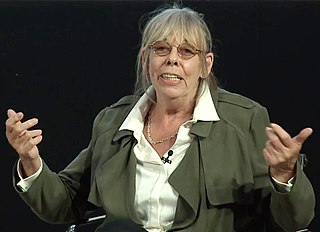
Frances J. de Lautour, better known as Frances de la Tour, is an English actress. She is known for her role as Miss Ruth Jones in the television sitcom Rising Damp from 1974 until 1978. She is a Tony Award winner and three-time Olivier Award winner.

Tsai Chin is a Chinese actress, singer, director, teacher, and author best known in the United States for her role as Auntie Lindo in the film The Joy Luck Club.

Ivan John Clark is an English actor, director, producer and writer. Clark is probably best known for his role as Just William in theatre and radio in the late 1940s and as the former husband of actress Lynn Redgrave, to whom he was married for 33 years. However, he established himself as a stage actor and director after moving to the United States in 1960, and became noted for directing plays featuring his wife in the 1970s beginning with A Better Place at Dublin's Gate Theatre (1973), then in America The Two of Us (1975), Saint Joan (1977–78), and a tour of California Suite (1976). In 1981, he directed an episode of the CBS television series House Calls, in which Redgrave starred.
Zoe Ada Caldwell was an Australian actress. She was a four-time Tony Award winner, winning Best Featured Actress in a Play for Slapstick Tragedy (1966), and Best Actress in a Play for The Prime of Miss Jean Brodie (1968), Medea (1982), and Master Class (1996). Her film appearances include The Purple Rose of Cairo (1985), Birth (2004), and Extremely Loud & Incredibly Close (2011).

Much Ado About Nothing is a comedy by William Shakespeare thought to have been written in 1598 and 1599. The play was included in the First Folio, published in 1623.

Rosalind is the heroine and protagonist of the play As You Like It (1600) by William Shakespeare. In the play, she disguises herself as a male shepherd named Ganymede. Many actors have portrayed Rosalind, including Sarah Wayne Callies, Maggie Smith, Elizabeth Bergner, Vanessa Redgrave, Helena Bonham Carter, Helen Mirren, Patti LuPone, Helen McCrory, Bryce Dallas Howard, Adrian Lester and Arabella Dulcie.

Robert Petkoff is an American stage actor known for his work in Shakespearean productions and more recently on the New York City musical theater stage. Petkoff has performed on Broadway, the West End, regional theatre, and done work in film and television. Petkoff was featured as "Perchik" in the Tony award-nominated 2004 revival cast of Fiddler on the Roof but is perhaps best known for his role as "Tateh" in the 2009 revival of Ragtime on Broadway. Petkoff has also provided the voices for over two dozen audiobooks, winning awards for his reading of Michael Koryta's So Cold the River. Married to actress Susan Wands, Petkoff has lived in New York City for the last twenty years, and often performs in benefit concerts for theater-district-related charities.

The Mirror Theater was founded by Sabra Jones in 1983, who was also the Founding Artistic Director. The first program of the theater was the Mirror Repertory Company (MRC). Founding members of the company included Eva Le Gallienne, John Strasberg, and Geraldine Page. Sabra Jones reached out to Ellis Rabb, artistic director of the APA Phoenix Repertory Company, John Houseman of the Mercury Theater, and Eva Le Gallienne of the Civic Repertory Theatre Company. The company was intended to be "an alternating repertory company in the classic sense" of actor-manager leadership, which Rabb, Houseman, and La Gallienne pioneered. Alternating repertory refers to when one company performs a variety of plays in the same season with the same actors, which was formerly a mainstay of theater tradition. This system has been attributed with helping actors grow in their craft through a wide variety of roles. MRC was funded in its inception primarily by philanthropist Laurance S. Rockefeller, with additional donations from philanthropists and actors such as Paul Newman, Al Pacino, Dustin Hoffman, and others.



















